El milagro secreto: Rodrigo Hasbún’s Spanish-Language Workshop in Houston
Brian Beard is a member of Writers in the Schools’ Outreach Committee and an ongoing member of Rodrigo Hasbún’s Spanish-language writing workshops at Literal, Latin American Voices. Beard’s writing appears in Bellevue Literary Review, the New Guard, Poetry East, Quiddity, Red Rock Review, Sixfold, Translation Review, and elsewhere. Beard took part in a P&W–supported Spanish-language workshop, El milagro secreto (The Secret Miracle), also led by Hasbún, at Houston’s Writespace writing center in November of 2017.
When María Quiroga moved from Mexico City to Houston in July 2017, she missed the writers group she’d left behind. She headed to the local library branch, looking for other writers, but couldn’t find any there. So when she learned that celebrated Bolivian author Rodrigo Hasbún, author of Affections (Simon & Schuster, 2017), would be offering a writing workshop in Spanish at Houston’s Writespace writing center, she jumped at the opportunity.
“It was such a warm and inviting community,” Quiroga says of the workshop, which included twelve writers from Bolivia, Cuba, Honduras, Mexico, Spain, Venezuela, and the United States.
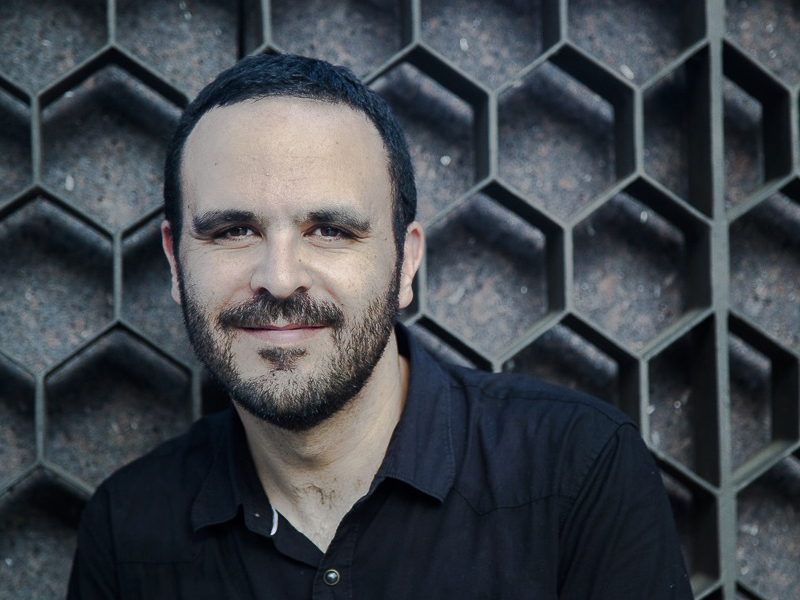 When Hasbún moved to Houston in 2014, he found that although the city was home to a thriving literary scene and over a million Spanish speakers, writing workshops in Spanish were few and far between. Hasbún began to offer his own workshops to fill the gap.
When Hasbún moved to Houston in 2014, he found that although the city was home to a thriving literary scene and over a million Spanish speakers, writing workshops in Spanish were few and far between. Hasbún began to offer his own workshops to fill the gap.
“Writing is a solitary profession,” Hasbún says in an e-mail. “Sometimes you can get the impression that nobody is interested in the work you’re doing. When you are a writer living in a country where the language and the culture are foreign to you, this effect tends to be heightened. By offering encouragement, camaraderie, and a valuable sense of community, a writing workshop can make all the difference.”
On the first day of the workshop, as part of an exercise to inspire the members of the group to use details to create character, Hasbún showed a short film in which people at the top of a ten-meter diving platform decide, with varying degrees of angst, whether to jump or climb back down the ladder.
The act of writing, Hasbún suggested to the group, is akin to jumping off a diving platform. “When you write,” he says, “you have to throw yourself again and again into the void.”
Week after week, in the sessions that followed, the workshop members responded to the challenge, pushing themselves into new territory as they created short stories which they shared and workshopped with the group.
“In the wake of new political threats to many of our country’s Spanish speakers,” writes Writespace’s founder and director Elizabeth White-Olsen in an e-mail, “I felt it was important that we were doing something, even if it was small, to say to people who move to the United States from other countries, you are welcome here. We appreciate you and want you to find a home here.”
For many of the group members, it was the first time they had come into contact with other Spanish-speaking writers in Houston.
“I was surprised and delighted,” Quiroga says, “to find that the voices of the other writers, although they were in Spanish, were completely distinct from the voices of the writers I had become accustomed to in Mexico. Their life experiences, cultural contexts, and literary backgrounds were so varied that, encountering their stories, I felt as if I were discovering my language for the first time.”
In addition to being hosted and sponsored by Writespace and cosponsored by Poets & Writers, Hasbún’s workshop was also cosponsored by Arte Público Press and Tintero Projects.
Support for Readings & Workshops events in Houston is provided by an endowment established with generous contributions from the Poets & Writers Board of Directors and others. Additional support comes from the Friends of Poets & Writers.
Photo: Rodrigo Hasbún (Credit: Sergio Bastani).




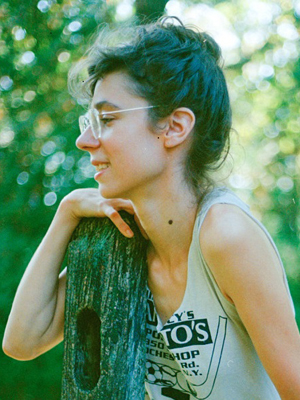 Interdisciplinary practice has been a major concern of my work ever since I moved to New York in 2008 to immerse myself in its creative scenes as a first step toward writing about art professionally. I began attending events at a range of venues like Judson Memorial Church, Roulette,
Interdisciplinary practice has been a major concern of my work ever since I moved to New York in 2008 to immerse myself in its creative scenes as a first step toward writing about art professionally. I began attending events at a range of venues like Judson Memorial Church, Roulette, 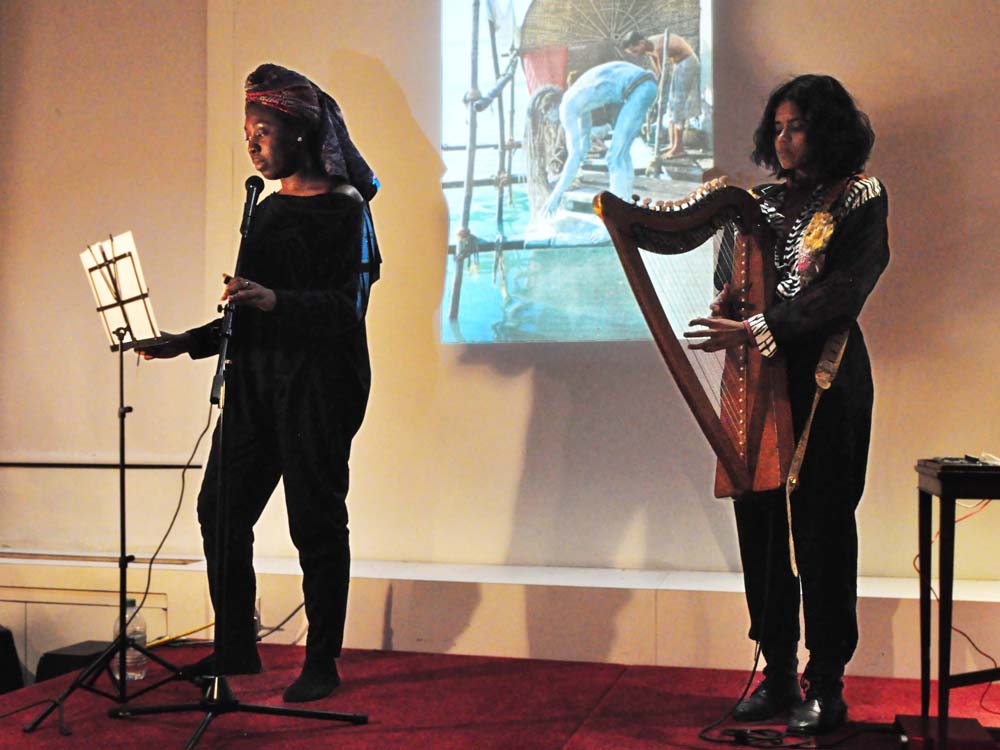 I have since become the curator of Ekphrazein, and on February 16, we hosted our sixth reading held in the Jung Center’s first floor event space, with support from Poets & Writers’ Readings & Workshops program. The thematic focus of the night was ashes, and each artist performed against a projection of their chosen ash image. The program began with multimedia artist Akeema-Zane reading poetry while accompanied by harpist Elsz. Poet Geoffrey Olsen was second on the bill, which concluded with a performance of improvised music and dance featuring Jason Kao Hwang (violin), Devin Brahja Waldman (saxophone), Megumi Eda (dance), and Yoshiko Chuma (dance). The presentations ranged between painstaking poetic craft and the playful abandon of free jazz, with each set activating a charged intimacy between artist and audience. Afterwards we all went up to ARAS for a candlelit wine reception, where I observed the enthusiasm with which audience members approached performers to engage in conversation about the night. It was energizing to see new acquaintances made and new doors opened to potential creative fusions across disciplines. I look forward to seeing what works and alliances this uncategorizable series will galvanize in the future.
I have since become the curator of Ekphrazein, and on February 16, we hosted our sixth reading held in the Jung Center’s first floor event space, with support from Poets & Writers’ Readings & Workshops program. The thematic focus of the night was ashes, and each artist performed against a projection of their chosen ash image. The program began with multimedia artist Akeema-Zane reading poetry while accompanied by harpist Elsz. Poet Geoffrey Olsen was second on the bill, which concluded with a performance of improvised music and dance featuring Jason Kao Hwang (violin), Devin Brahja Waldman (saxophone), Megumi Eda (dance), and Yoshiko Chuma (dance). The presentations ranged between painstaking poetic craft and the playful abandon of free jazz, with each set activating a charged intimacy between artist and audience. Afterwards we all went up to ARAS for a candlelit wine reception, where I observed the enthusiasm with which audience members approached performers to engage in conversation about the night. It was energizing to see new acquaintances made and new doors opened to potential creative fusions across disciplines. I look forward to seeing what works and alliances this uncategorizable series will galvanize in the future.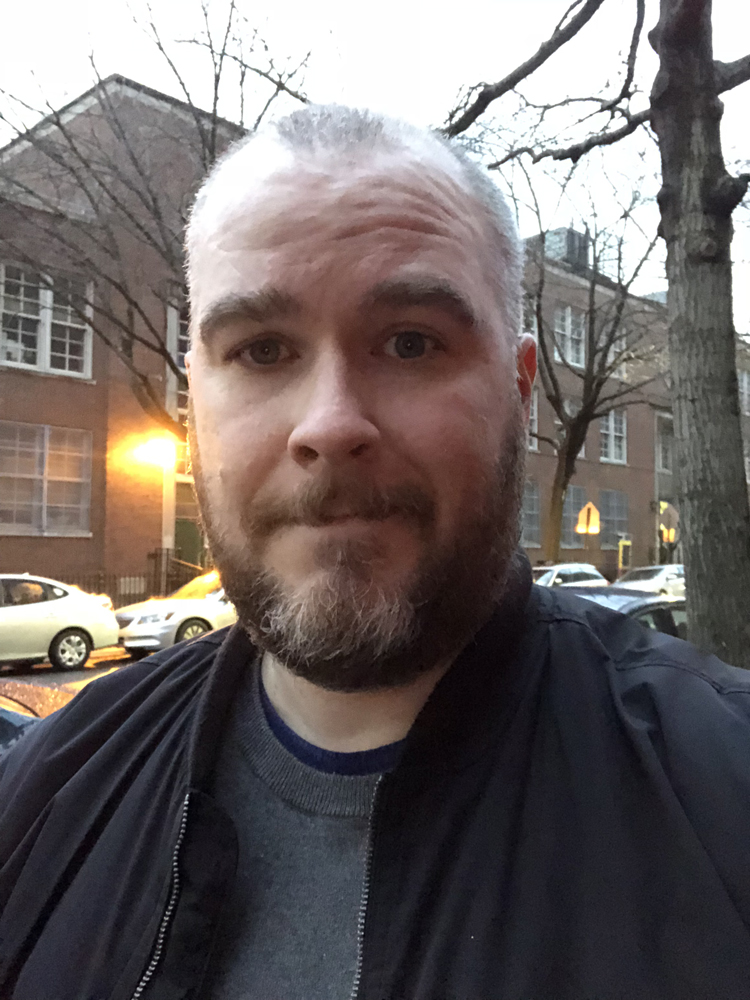 How did Newtown Literary begin? What prompted you to launch it?
How did Newtown Literary begin? What prompted you to launch it?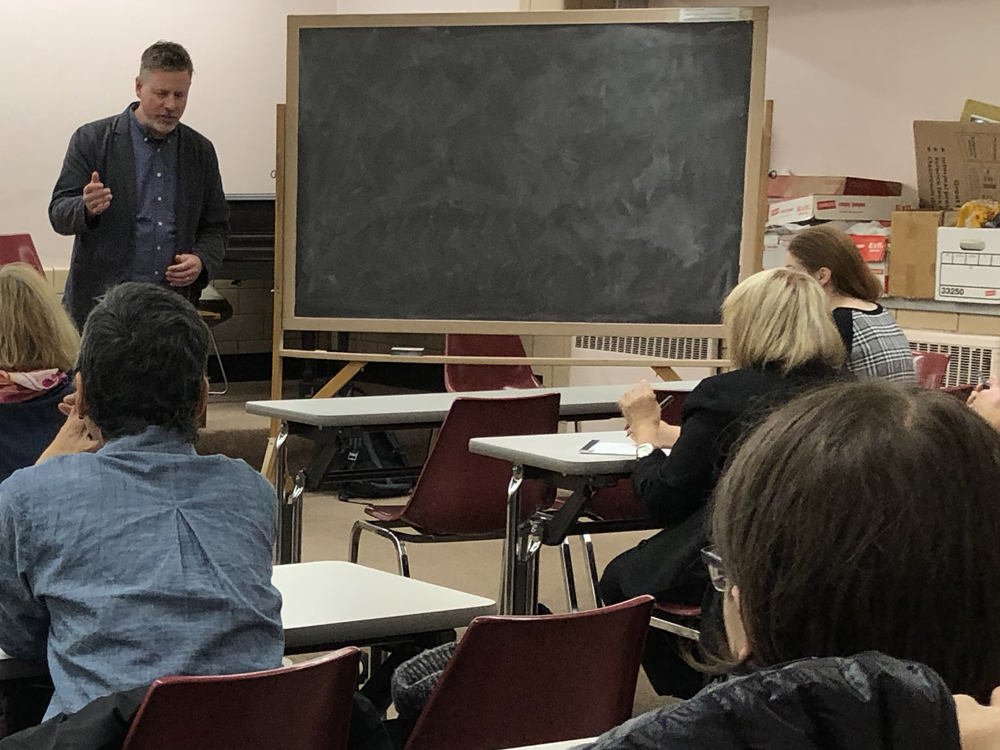 The literary events scene in Queens is going strong. What’s next?
The literary events scene in Queens is going strong. What’s next?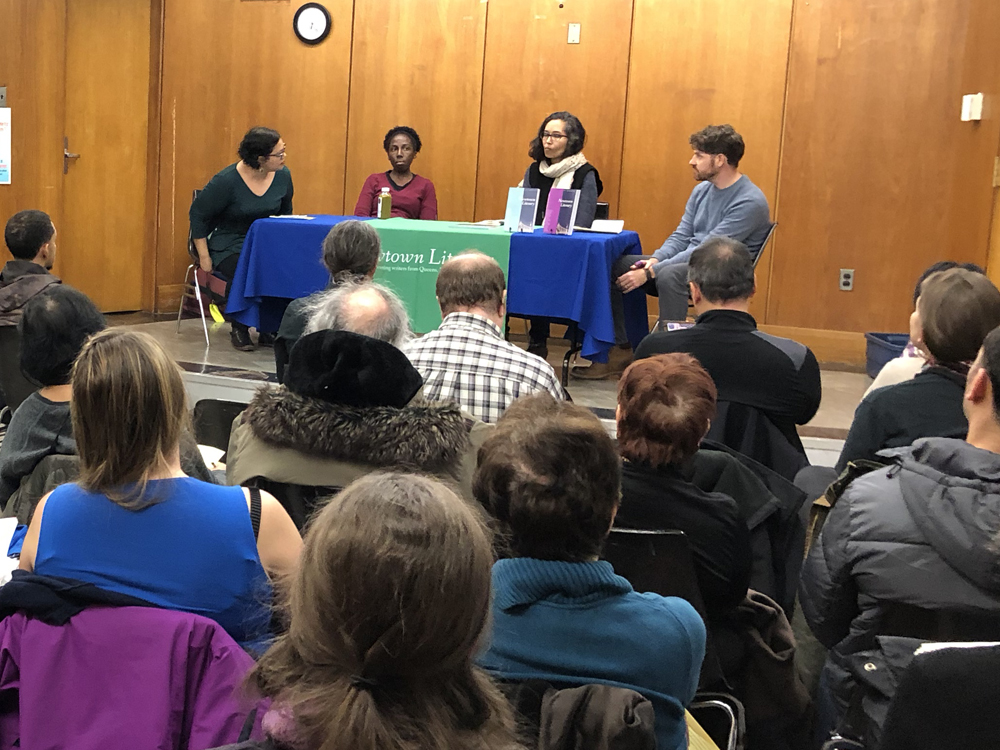 In addition to being a literary organizer, you’re also a creative writer. What’s it like wearing two hats, so to speak?
In addition to being a literary organizer, you’re also a creative writer. What’s it like wearing two hats, so to speak?